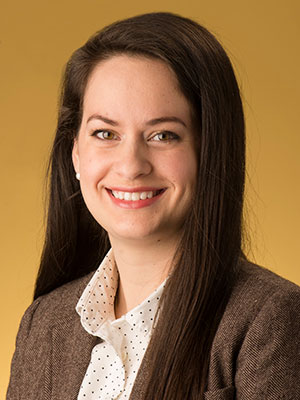Gruss Receives NSF EEC Award to Study Arts-based Observation andDeveloping Perspective-taking
in First-year Engineering StudentsAmy Borello Gruss, Assoc. Professor, Environment
Engineeringin the Dept. of Civil and Environmental Engineering

This award through the National Science Foundation's Division of Engineering Education
and Centers (EEC) awards $199,998 for Research Initiation on Developing perspective-taking
in first-year engineering students using arts-based observation.
By immersing students in art analysis at KSU’s Zuckerman Museum of Art, the aim is
to enrich critical thinking and attentive listening skills that can be directly applied
to their engineering design projects. The study, led by Dr. Gruss, delves into the
development of perspective-taking abilities in freshman engineering students through
arts-based observation. This innovative approach strives to cultivate engineers who
excel in technical aspects and exhibit empathy and adept problem-solving skills, preparing
them for future success.
The museum's open space and freedom create an atmosphere and environment conducive
to discussion and interaction of ideas. The expanded environment can allow engineering
students to collaborate and utilize their interpersonal skills to learn more about
intellectual concepts, designs, and solutions that are transferable to the classroom,
the lab, and collaboration.
Research indicates that while students may acquire technical proficiency throughout
their academic journey, they often lack the essential interpersonal skills required
for effective collaboration. By integrating Visual Thinking Strategies (VTS) as a
means to hone communication and attentive listening, students can enhance their capacity
for teamwork. Implementing VTS activities in a trial course resulted in a noticeable
rise in students' inclination towards teamwork, as evidenced by the Collective Orientation
instrument.
Overall, utilizing art exhibitions as a non-intimidating platform to elevate teamwork
experiences showcases the potential to boost students' interpersonal skills and equip
them for prosperous careers in the field of engineering. This method not only fosters
technical prowess but also fosters a collaborative and attentive mindset among future
engineers.